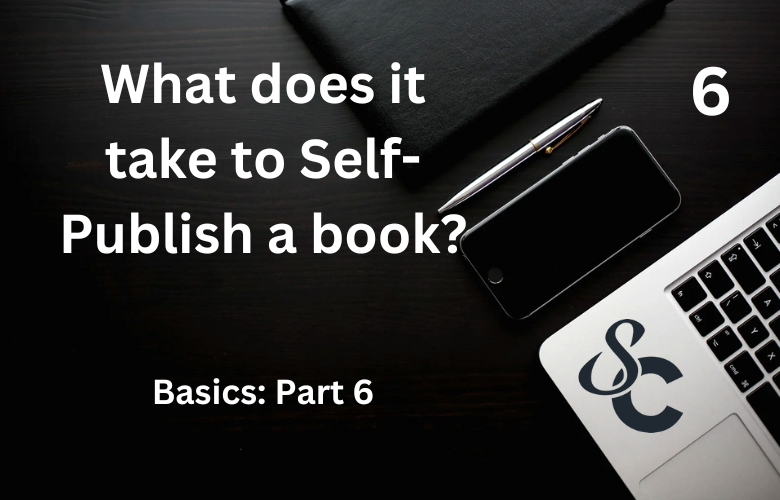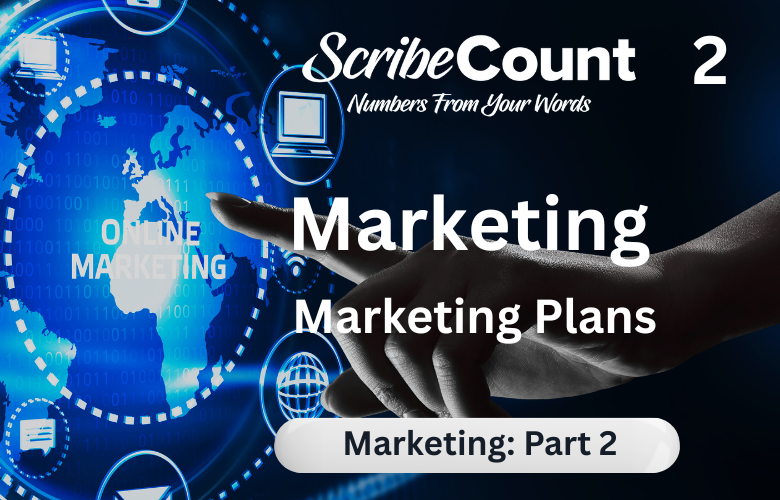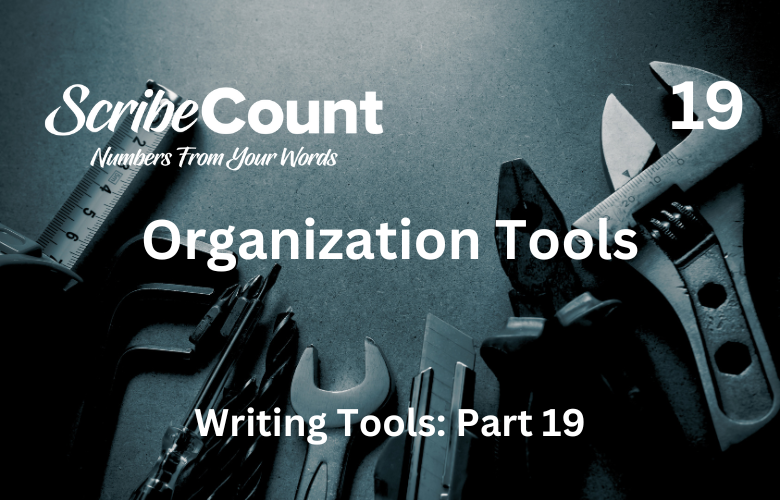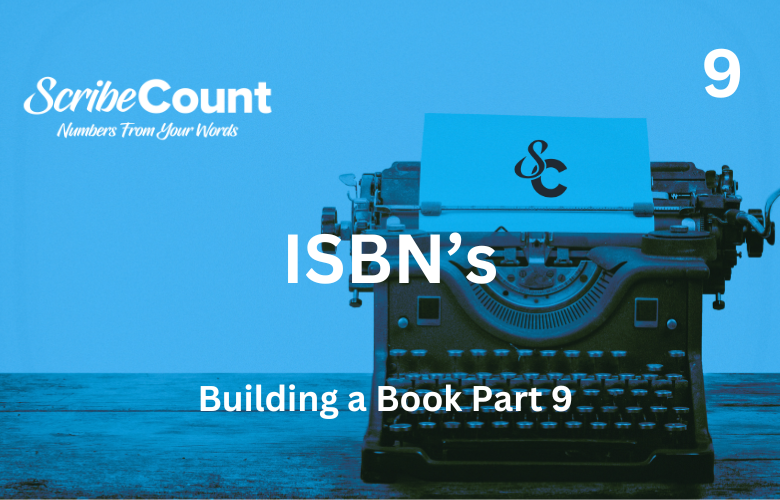What does it take to self-publish a book?
If you are considering self-publishing a book you’re probably wondering what’s involved in the process, how much of a learning curve there is, what tools are available, what skills are needed, and how much time it will take you to do so. In this post, we’ll address all that and more and try to erase any gray areas you may have.
There’s obviously more to publishing a book than simply producing a manuscript. Some would even say that the real work doesn’t start until that is finished. There are several steps that need to take place before, during, and after the writing. Several things need to be set in motion simultaneously to produce, launch, and then market a book. We’ll outline each of them here and then offer a “Master Checklist” sample for you to reference.
First, some good news.
If you’ve spent any significant time using a computer or being online, chances are good that you already possess many of the skills needed to self-publish a novel. Some skills you will perform yourself, some you will need to learn to do, others you may wish to farm out to others, and some you should never do yourself.
Some examples we’ll mention here are formatting, cover art, editing, and taxes.
Formatting
Formatting is simply arranging your written words in a required way so it can be stored and delivered as data. Many authors consider formatting to be one of the easier skills to learn, and with the aid of software such as Vellum or Atticus designed to do just that, it's even easier.
Cover Art
A good book cover requires skills in graphic design and a certain amount of artistic ability. This, and the expensive software that goes with it, makes it a skill that is out of reach for the average author. Therefore most authors hire the work out to experienced designers. AI has made this somewhat easier but there’s a learning curve involved. Most authors who are just starting out have low-cost options for producing good covers and we’ll talk about them in more detail in another post.
Editing
Editing requires some education and years of practice to be proficient. While there are a few authors that can pull it off, editing is regarded as something no author should do themselves. If you are on a limited budget, editing should be the item you prioritize.
Taxes
The taxes of a self-publisher can get complicated quickly, and while software can make things easier it's highly suggested that you consult a tax professional in your first year. The cost of which is a write-off. They will most likely save you more money than you end up paying out and you’ll learn a plethora of ways to save even more in the years to come.
Do it yourself, or hire others?
The decisions you make will hinge on many things.
Do you have the time to do it yourself?
Do you possess the necessary skills?
Is your time worth more than the costs involved?
Is the learning curve too much of a challenge or will it take too long to become proficient?
Can you do it, but it’s just not something you enjoy?
Will your budget allow for it?
Whatever the reason, it’s important to separate what you will be doing yourself from that which you will be utilizing others for. The costs associated with each will need to be factored in, as well as the time it takes to complete them.
Knowing what you don’t know, and then having a plan to cover those things will not only speed up the process of producing your book but also keep your costs in check and make your publishing process run smoothly.
How you spend your time is key.
Time is still money. So first, let’s determine what yours is worth.
What is your time worth?
It’s a good question, one that you might answer with another: How do I know the answer to that when I have yet to write or publish anything?
Without content, meaning actual words on the page or screen, you have nothing to sell. That requires hours spent in the chair tapping the keyboard. So time management will be a crucial part of your self-publishing future. It’s easy to become what pilots refer to as “task saturated”. When this happens to them, planes crash. When it happens to a businessman, the business crashes. If the tasks of running your business are dominating your time and keeping you from writing, then it’s time to examine them and make some adjustments.
It comes down to a simple equation: Money vs Time.
Or, to make it even simpler: Would I be better off writing?
To answer that question, we first have to put a number on it.
The logical place to start is to ask yourself a simple question: Can I do everything? Am I sufficiently skilled in the areas of proofreading, making cover art, formatting, marketing, and all the other tasks associated with producing and selling books? Each of these items and more are required to produce a quality book. Each of them takes time. Finding the right balance is key.
You should start by separating the sample list we offer here into two piles; one that contains the things you are good at and can do yourself, (This does not include skills you are interested in or wish to learn. This list is for the skills you have right now at this moment) and the other a list of things which you are not proficient at and will need to hire others to complete.
Here is a sample list of what it takes to write and publish a book as an indie author. This is only a sample and we can pretty much guarantee it will NOT perfectly match that of any other author. We offer it here to show the many steps involved in the process. A majority of these items will have question marks after them as some authors do them while others do not. Your own list will evolve naturally as you publish more books, you should avoid thinking you need to perform all the items we list here.
Master Book Production Checklist: Indie
Idea!
Idea template
Research the target market
-Is the idea a complete one?
-Is it big enough?
-Is there a current market for this type of book?
-Is this idea in your lane?
-What is the competition?
Plotting Template
Can you hit all the genre tropes without deviating too much from the standard structure?
Complete all the research needed.
Make a writing schedule and calculate the following:
-expected finish date
-expected launch date
Commission cover art for the eBook version.
Determine Popular Covers in the Genre and Subcategories
Does your cover capture the tone and genre of your book?
Does it differentiate your work from other books in the genre?
Can you easily read the title on the cover, even as a thumbnail?
Do you need a cover for a print book, an ebook, or both?
Does it look amateurish, and will it stick out like a sore thumb in a bookstore?
Pick a title
-Determine Popular Titles & Blurbs in the Subcategories
Schedule Developmental Editing
Schedule Copy Editing
Guestimate how much time you will need for each re-write.
Schedule Proofreading
Schedule Final Draft Re-write
Determine a launch date.
Write a blog post with a hint of what you are working on. Include a vague/flexible publishing date.
Research Keywords and Categories.
Purchase ISBN’s
Start Writing.
Approve Cover Art
Once cover art is in hand:
-Make ads for social media.
-Make a landing page for the book on your website.
Write cover content
Commission Paperback and Hardcover covers.
Make a marketing plan/schedule
Publish the blog post w/cover art and schedule the pre-order. Link the post and pre-order link to your mailing list, newsletter, FaceBook, Instagram, TikTok, Pinterest, etc.
Schedule follow-up blog posts. Include things that are related to the book you are working on without actively promoting it.
Send the first third of the book to your beta readers for feedback.
Adjust accordingly to beta reader input and continue writing
Continue to promote pre-order.
Consider:
-An interview – written
-An interview – Podcast
Commission a book trailer.
Finish the first draft
Developmental Edit.
Re-write #1
Copy Edit
Re-write #2
Proofreading
Final Draft
Make ARC copies
Offer a number of copies to your mailing list. (50-100) People who accept do so in exchange for a review.
Make a Copyright Page
Format for all formats and platforms
Determine and Set the New Release Price
Write the Blurb
Produce Paperback and Hardcover files
Update the backmatter in any relevant previous books with teaser and blurb for the new book.
Update Author Bio
Update Website
Register the Copyright of the book
Add the book to your website store
Launch the final pre-pub ad campaign
Publish Ebooks, Paperbacks, and Hardcovers
Email blast to your newsletter subscribers
Launch post-pub ad campaign
Consider paid newsletters
Consider Newsletter swaps
Consider Platform advertising options
Consider Social Media ads
Consider a BookBub Feature Deal
Update Goodreads
Consider a blog tour
Consider a book signing/tour
Commission a sell sheet and mail it out to all the proper bookstores and libraries
Start the Audiobook production process
Make a six-month post-publish marketing plan and schedule.
Idea!
Chances are you have three lists now.
One for things you’ll do yourself.
One for things you’ll need someone to do for you.
and
One for the items you are unfamiliar with. (Don’t worry about this list, we have posts to explain those items elsewhere.)
Items on these lists will migrate back and forth as you make progress on your self-publishing journey. List one will likely grow. List two will likely shrink. List three will add and delete items as the business evolves. If you find yourself with zero items on list three it's time to go to a conference, but we’ll talk about that more later.
For now, focus on list 2.
Again, how do you know what your time is worth when you have yet to write or publish anything?
You don’t. But we can get close by using a simple formula.
Start with your typing speed. Let’s say you write at a pace of 500 words per hour. To complete a modest novel of 80,000 words you would need 160 hours. With re-writing and a bit of proofreading, you can add another 40 hours for a grand total of 200 hours.
We’ll assign a value of $10,000-$20,000 to this book, which is the amount you hope to make once it's published.
$20,000 / 200hrs = $100/hr.
$10,000 / 200hrs = $50/hr
Average = $75/hr
This is what you should consider your time is worth. Obviously, this formula is flexible in order to meet any author's schedule and speed of production, and even if off in one direction or the other, it is still sufficient for our needs here.
Weigh the cost/benefit of each task.
When evaluating the Money vs Time question it’s important to be brutally honest with yourself.
Cover Art
A good example would be cover art. Learning the intricacies of Adobe InDesign, and then having the artistic talent necessary to produce quality covers that can compete with the professionals out there, is something that will require hundreds of hours of practice. And even then there is no guarantee that this will be a good use of your time. Speed of production is as important to cover design as it is to writing. If you study and practice and are someday able to produce expert-level covers, they still have to be produced in the same amount of time as a hired artist to be a financially prudent business decision. If it takes you several times the hours spent making a book cover than a hired gun would take to produce the same, then your time is better spent writing the next book.
AI software such as MidJourney can produce quality covers in less time, but there is still a learning curve that comes with that. You’ll have to measure that time accordingly.
Marketing
Marketing is another good example. Quality marketing involves a certain degree of math skills, some understanding of search engines and algorithms, and quite a bit of screen time in order to leverage an ad campaign to its optimal result. These skills can be picked up and strengthened the more one delves into them and would likely result in proficiencies that the author will use throughout their publishing career. So the time spent learning to market may pay off over time. The new author should make a concentrated effort to learn and understand marketing if only for the fact that the better they understand it the better control they will have over their book’s success and be less dependent on others in the future.
One-time task or a repeated task?
Another thing to consider is whether the task is one that will be repeated, or if it is a one-time task that you will hopefully never need again once it is done. Building a website is an example of a one-time task while running a FaceBook ad campaign will be something done repeatedly. You should examine the learning curve for each and apply your hourly rate accordingly before taking either task on.
Accepting your skill level
This is another part of this. You may take on learning marketing for instance. You spend hours reading books and watching podcasts, you pay for expensive courses and do your best to apply everything you’ve learned, only to end up with ad campaigns that fail to produce.
If you find yourself in such a situation, be it with your marketing or the covers you produce for your books, it might be time to face the fact that you may not possess the skill level needed to compete with your peers.
If that’s the case, it’s time to hire a professional and get back to what you do well, writing books.
What do those professionals cost? We’ll discuss that in another post.




